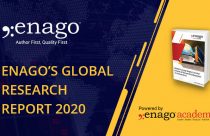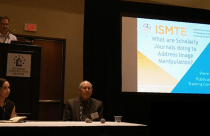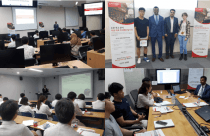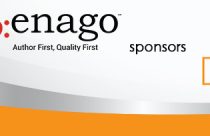Connecting the Scholarly Publishing Community in Asia: The 2016 Asian Council of Science Editors Annual Conference, Dubai
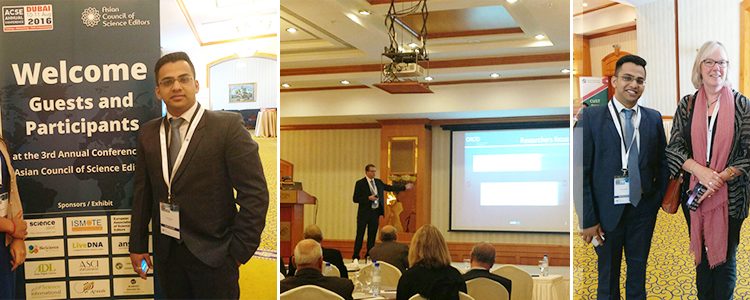
Dubai, UAE: As part of our constant endeavor to keep abreast of the emerging trends and challenges faced by the scientific community, Enago attended the 2016 Asian Council of Science Editors (ACSE) Annual Conference, a premier networking and learning event for scholarly publishing individuals in Asia. As with every year, this year’s annual event, held on August 10–11 at the Carlton Palace Hotel, Dubai, provided thought-provoking, practical, and interactive sessions on a wide range of interesting topics relevant to the academic publishing industry. The conference welcomed researchers, reviewers, editors, and publishers, along with key organizations to share information, learn about new initiatives, and participate in discussions with panel. Enago was represented by Aditi Prabhu and Paras Pandya.
In line with the organization’s mission, the conference was designed to provide an active platform that fosters individual connections within the scientific research community. The objective was to bring together an “exclusive combination of short courses by leading industry experts, learning sessions by key professionals, and a wonderful blend of international-level sessions by top analysts from all over the globe.”
Day 1 of the conference included a short course by Philip Purnell, Director of Research Services at Knowledge E. He spoke on the “Importance of Bibliometrics” for editors and covered the following points:
- Impact factor and different citation indexes
- Advantages, limitations, and controversies surrounding citation indexes
- Latest trends in bibliometrics
Pippa Smart, Editor-in-Chief of Learned Publishing, the official journal of ALPSP, and a publishing consultant with over 25 years of experience in the STM industry delivered another course on “Improving Your Journal Quality.” She covered the following topics:
- Predatory & fraudulent journals
- What makes a journal successful?
- Good practice for journals to improve submission quality
- Latest trends in peer review
- Types of peer review (pre- and post-submission)
Day 2 included short sessions on several topics by speakers such as Lars Bjørnshauge, Director of the Europe division of the Scholarly Publishing and Academic Resources Coalition (SPARC) and Managing Director of the Directory of Open Access Journals (DOAJ). He shared his views on how to share data and research in his address “Increasing Drive from Governments, Funders, and Universities towards Open Access.” The session “CrossRef Services to Help the Scholarly Publishing Community” was facilitated by Rachael Lammey, Product Manager at CrossRef. She talked about the range of services CrossRef offers for researchers to conduct similarity checks in research. Matthew Buys, ORCID’s Regional Director for Africa, Middle East, and Canada spoke on the importance of ORCID and how it identifies unique researchers in his session “ORCID in a World Where Machines Read.”
“The sessions were interactive and encouraged productive debates, which made networking with industry experts interesting and fun,” said Aditi. She continued, “ACSE’s annual conference delivered on the organization’s mission to connect scholarly publishing professionals so that they can develop and disseminate knowledge and resources.” Paras added, “The excellent lineup of speakers provided ample opportunities to discuss the challenges and identify opportunities in the scholarly publishing community, and we thoroughly enjoyed exchanging knowledge and building new relationships with our peers.”





